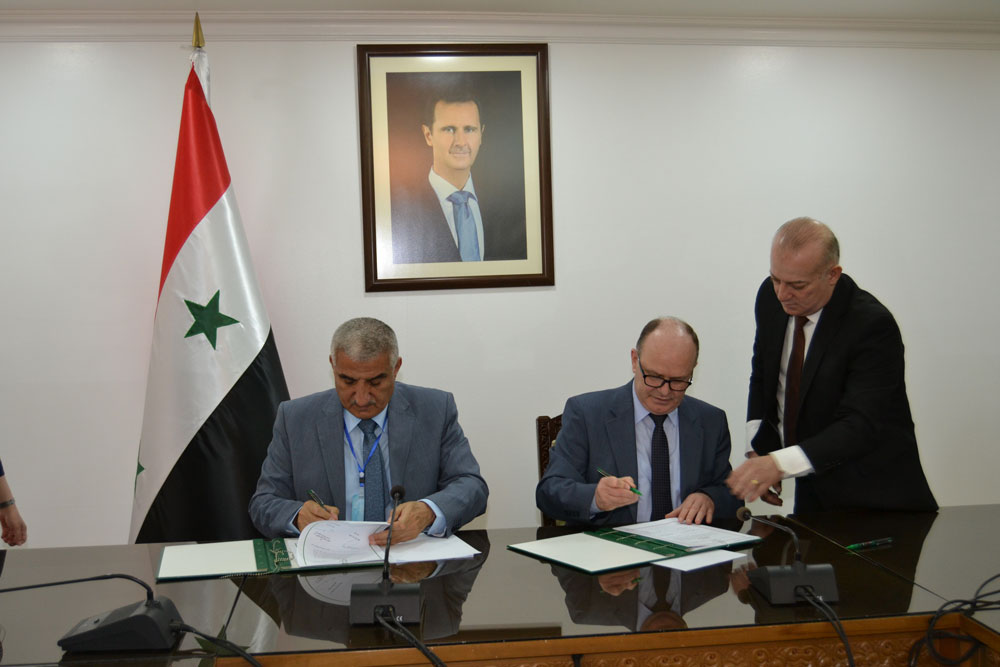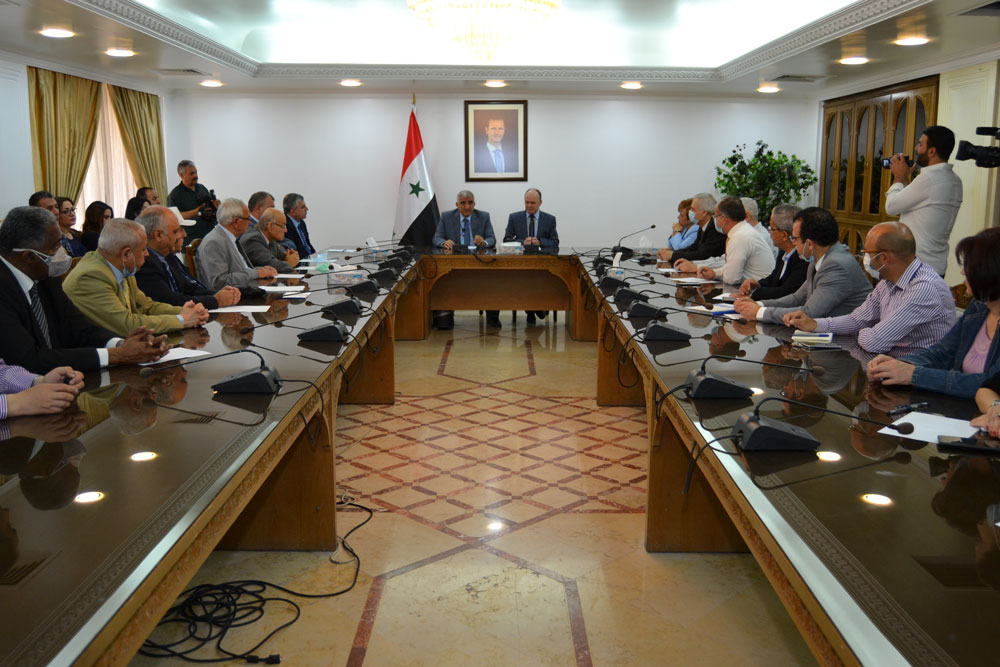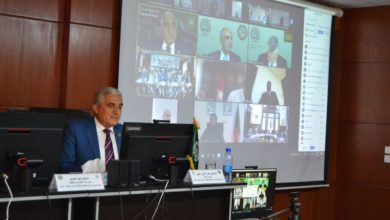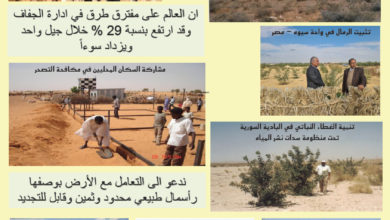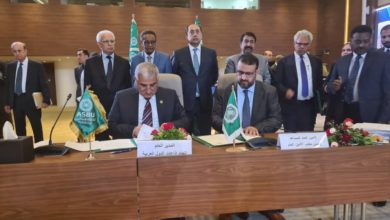A Scientific Cooperation Agreement between the Syrian Ministry of Higher Education and the Arab Center ACSAD
The Arab Center for the Studies of Arid Zones and Drylands ACSAD and the Ministry of High Education and Scientific research in the Syrian Arab Republic have signed a Scientific cooperation Agreement at the Ministry’s headquarters for enhancing the scientific and research cooperation in laying the right rules of sustainable development.
The Agreement was signed by the Arab Center’s Director-General, Dr. Nasr Edin Obaid, and the Minister of Higher Education and Scientific Research Minister Dr. Bassam Ibrahim.
The Agreement provides enhancing the scientific and research cooperation between the two sides within the framework of national efforts to develop scientific research to benefit from the scientific progress and modern technology, applying the sound management of the natural resources, and using it sustainably.
Dr. Nasr Edin Obaid, the Director-General of the ACSAD Organization, said in a speech that this Agreement aimed to the scientific cooperation between the Ministry and ACSAD to benefit from the joint efforts to implement the applied and scientific programs between both sides.
He pointed out that the Agreement was a general framework for several Agreements that were signed among ACSAD, universities, and scientific research Centers in the Syrian Arab Republic, which aimed to achieve scientific applied research in the fields of developing the livestock and plant sectors, land uses, biodiversity, the integrated management of water resources, and in the socio-economic areas. To benefit from the infrastructure on both sides to implement its results in Syria and the Arab countries.
In his turn, the Higher Education Minister confirmed that the Agreement would be a clear road map for the cooperation between the Ministry and ACSAD in various fields.
He also said that ACSAD was an Arabic house of expertise that made great achievements in the span of the Arab world, especially in the headquarters country, Syria. He expressed his hope for this Agreement to be a beginning of a new phase for fruitful cooperation, especially under the current administration of ACSAD.
The Agreement provides scientific studies, research, and experiments specialized scientific studies in common interest fields, organizing training courses, scientific meetings such as symposiums, workshops, and conferences, and exchanging the experiences, information, publications following the regulations approved by both parties.
According to the requirements of its local and Arab research programs and studies, ACSAD uses the members of the Ministry’s educational body to provide expertise, advice, contributing to research and studies following the current systems of both sides.
The Agreement also states the importance of taking the necessary procedures according to the current systems of the two sides to facilitate the participation procedures and internal and external traveling for symposiums, conferences, workshops, seminars, and implementing the projects and activities.
The Agreement also mentioned that both sides could benefit from the available scientific-technical expertise of the other side, participating in the scientific and technical committees formed by both. Then, ACSAD, concerned bodies in the High Education and Scientific Research Ministry, universities, institutions, and centers contributed to providing the joint presentations related to the most important scientific, technical, modern, and developed issues.
In accordance with what the Agreement provides, ACSAD supports graduate students (masters and Ph.D.), within its potentials, to achieve their theses that agreed to its topics with scientific-technical participation of both sides; within scientific programs and plans frame in line with its activities and studies. According to the Agreement, in order to strengthen relations between the Syrian Arab Republic, represented by the Ministry and other Arab countries members in ACSAD, Arab researchers working in ACSAD have the right to participate in the governance committees on masters or doctorates if they are specialists in the subject of research, and they are subjected to the governance committees’ terms.
The Agreement also seeks to adopt ACSAD’s scientific refereed journal (Arab Journal of Dry Environments) as an external scientific refereed journal following the current systems of High Education and Scientific Research Ministry and Syrian universities.
In addition, universities and scientific institutions affiliated with the Ministry can also organize scientific visits for specialized students and Syrian and foreign researchers that contribute to the Ministery’s joint research programs and ACSAD’s research stations to familiarize on research and experiments conducting there, which an elite of Arab experts work for; benefiting from the research findings and how they are applied and invested.
Furthermore, both sides exchange information, statistics, publications, scientific documents issued by both of them. Each part facilitates access to its library, laboratories, and the available techniques, including a mutual distribution system for the scientific publications to the other part, according to the current parties’ regulations.
The Agreement states that both sides have to consult in the possibility of joint symposiums, conferences, seminars related to their joint activities and tasks. Both sides’ experts can contribute to training courses, symposiums, workshops organized by the other part. Both parts exchange the timetable related to that and before an adequate time of its holding.
The results of the joint research are published on behalf of the parties, and the necessary measures are taken to protect copyright in accordance with established regulations.
It is worth mentioning that the Arab Center for the Studies of Arid Zones and Drylands ACSAD is a specialized Arab Organization that aims to unify the national efforts for agricultural scientific research development in the arid and semi-arid areas. Moreover, exchange expertise and information to benefit from scientific progress’ fruits and the transfer and development of modern agricultural technologies in order to increase agricultural production in these areas.
